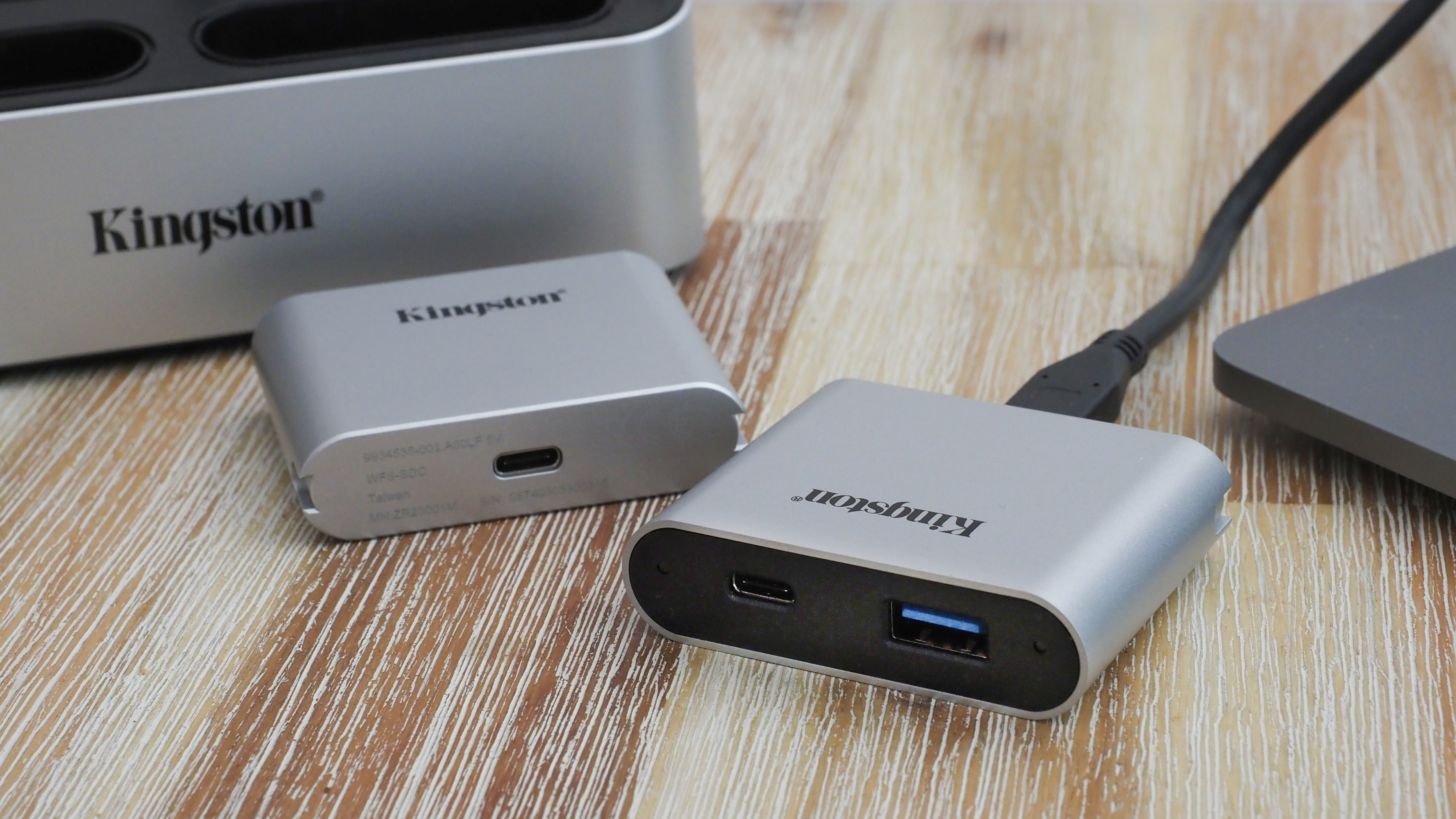Digital Camera World Verdict
Pros
- +
Download 8 cards at once!
- +
Fast transfer speeds
- +
Modular and customizable
- +
Modules also work standalone
Cons
- -
Dock requires power
- -
No CFexpress option (yet)
Why you can trust Digital Camera World
If your desk is a mess of wires and card readers, the Kingston Workflow Station could be the solution to your woes. It's a modular, customizable USB-C docking station that enables you to connect up to eight USB devices or SD-family memory cards at the same time.
Where the Kingston Workflow Station differs from the other best USB-C hubs on the market, though, is that its connections aren't pre-ordained; you can purchase Modules to give your dock exactly the connections you want.
Want to have six SD card readers and two microSD readers? No problem! Two USB-C connections, two USB-A connections, and four SD card readers? Sure thing! Plug in a eight cameras directly via USB-C? Go nuts!
The dock enables you to chop and change the Modules according to your needs – and they each operate on their own, too, so you can pop one in your camera bag to take on a shoot with you.
Will the Workflow Station replace your current USB hub and the best SD card readers out there? Let's take a closer look.
Kingston Workflow Station: specs & features
The base Kingston Workflow Station features the dock itself along with a USB miniHub Module that provides one USB Type A and one USB Type C input. The system supports USB 3.2 Gen 2 speeds, so you can expect snappy transfers and support for the latest devices.
Also available separately are Workflow SD Reader and Workflow microSD Reader Modules, which enable you to insert two respective cards at the same time. There are slots for four Modules, so you can have a maximum of eight connections simultaneously – which would enable you to download eight memory cards at once, for example.
The best camera deals, reviews, product advice, and unmissable photography news, direct to your inbox!
Best of all, each Module can also be used standalone – which means that you can take a Workflow SD Reader, for example, with you on a shoot and transfer your files without having to lug the whole dock around with you.
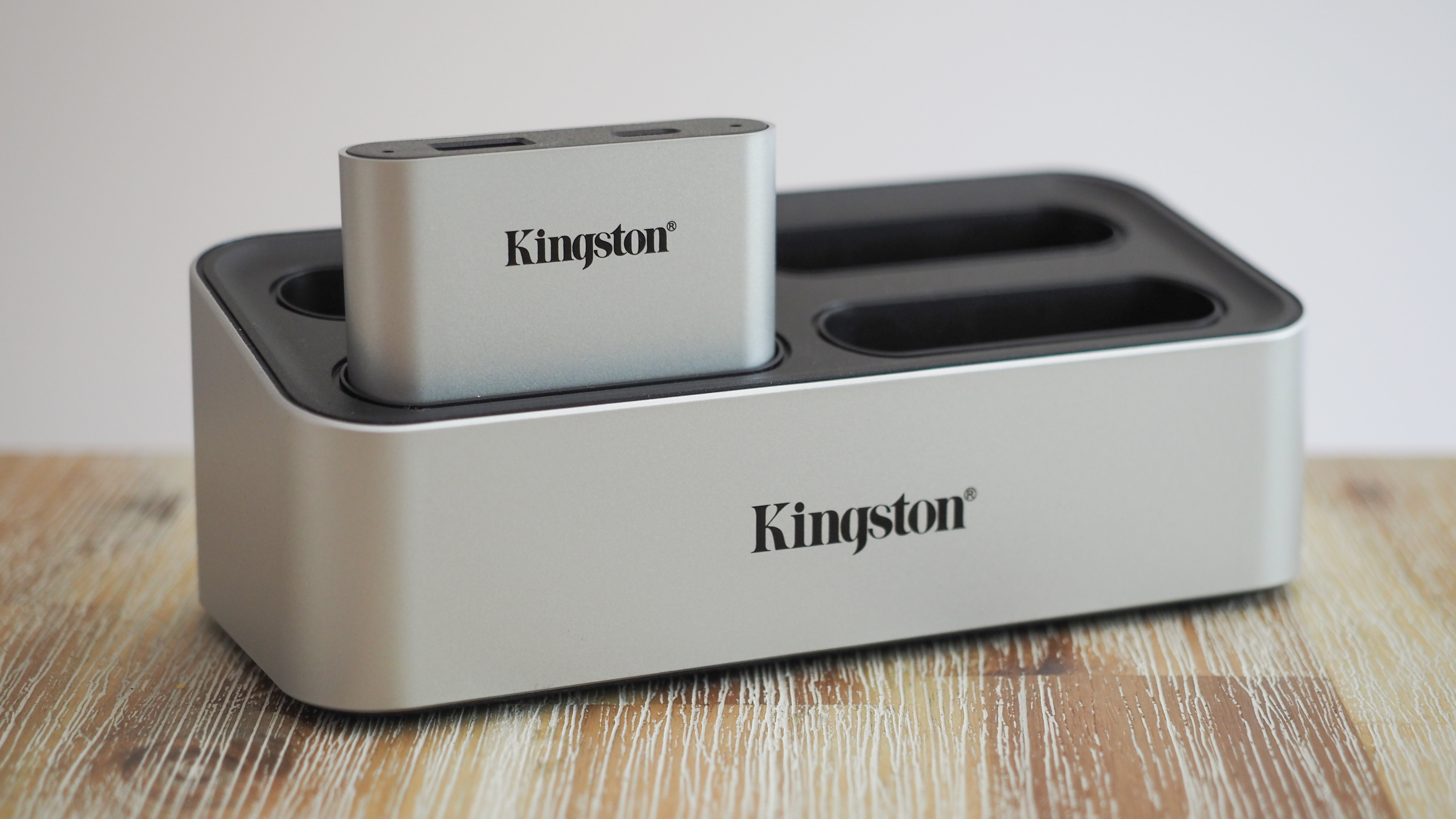
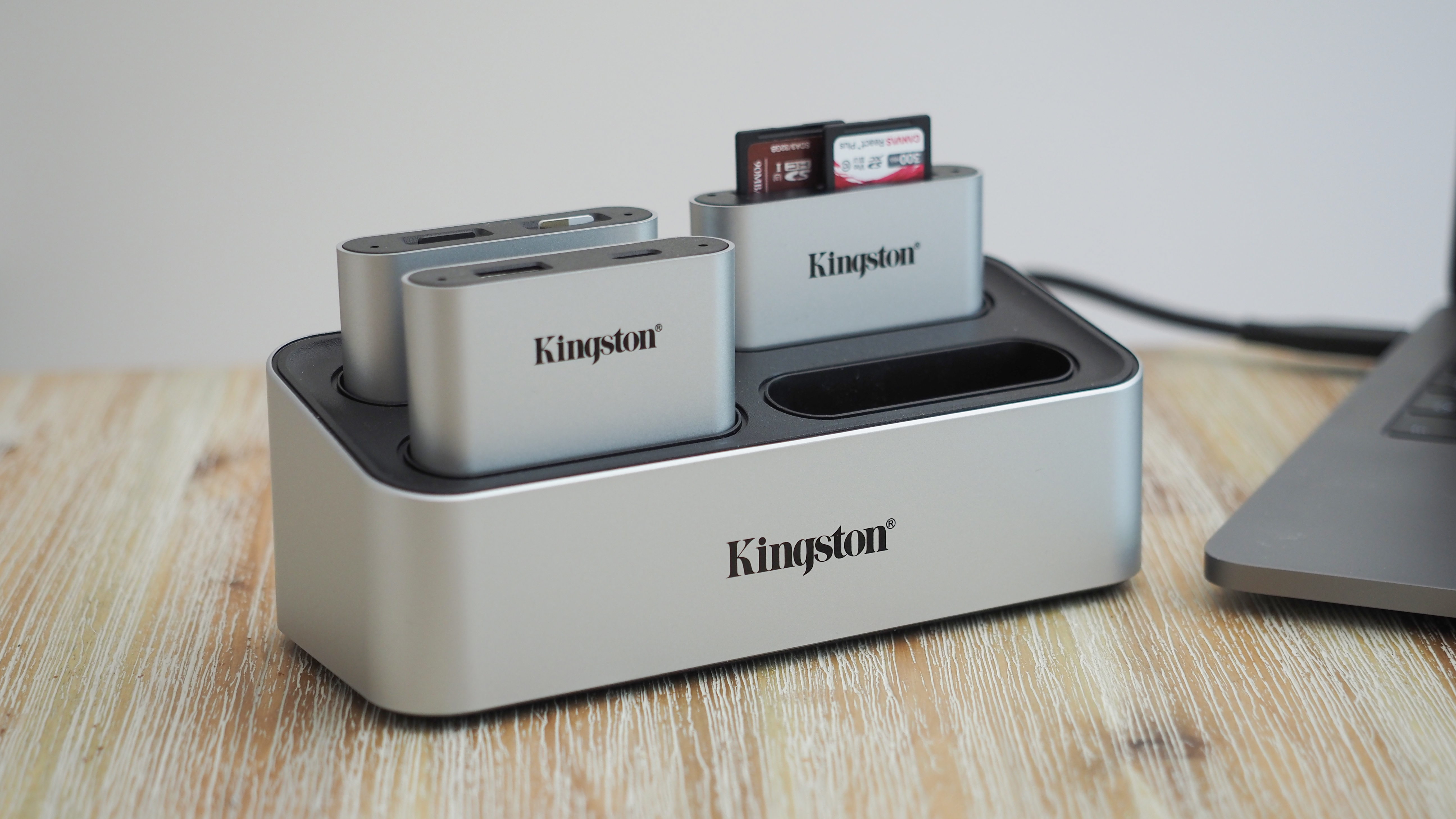
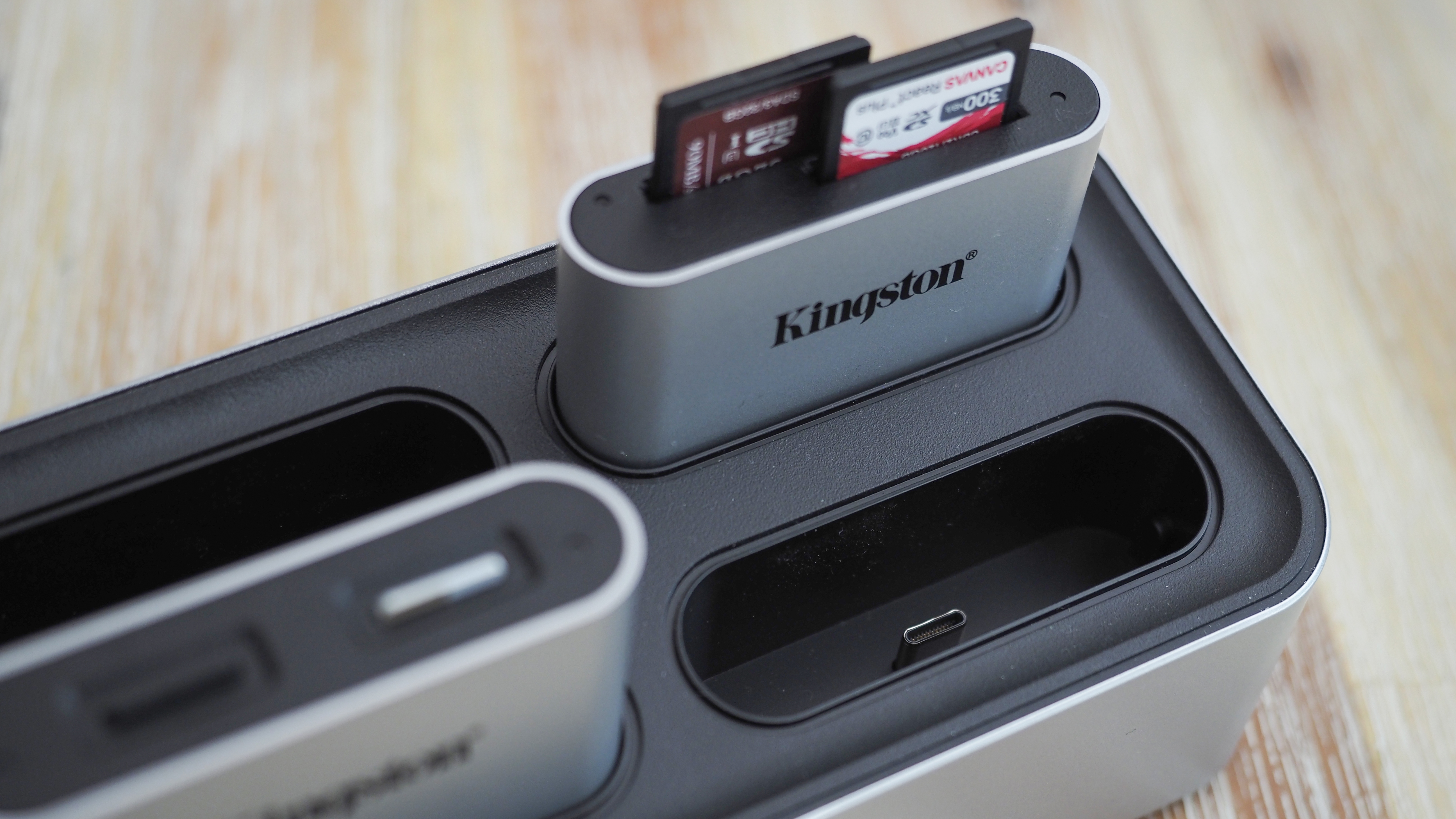
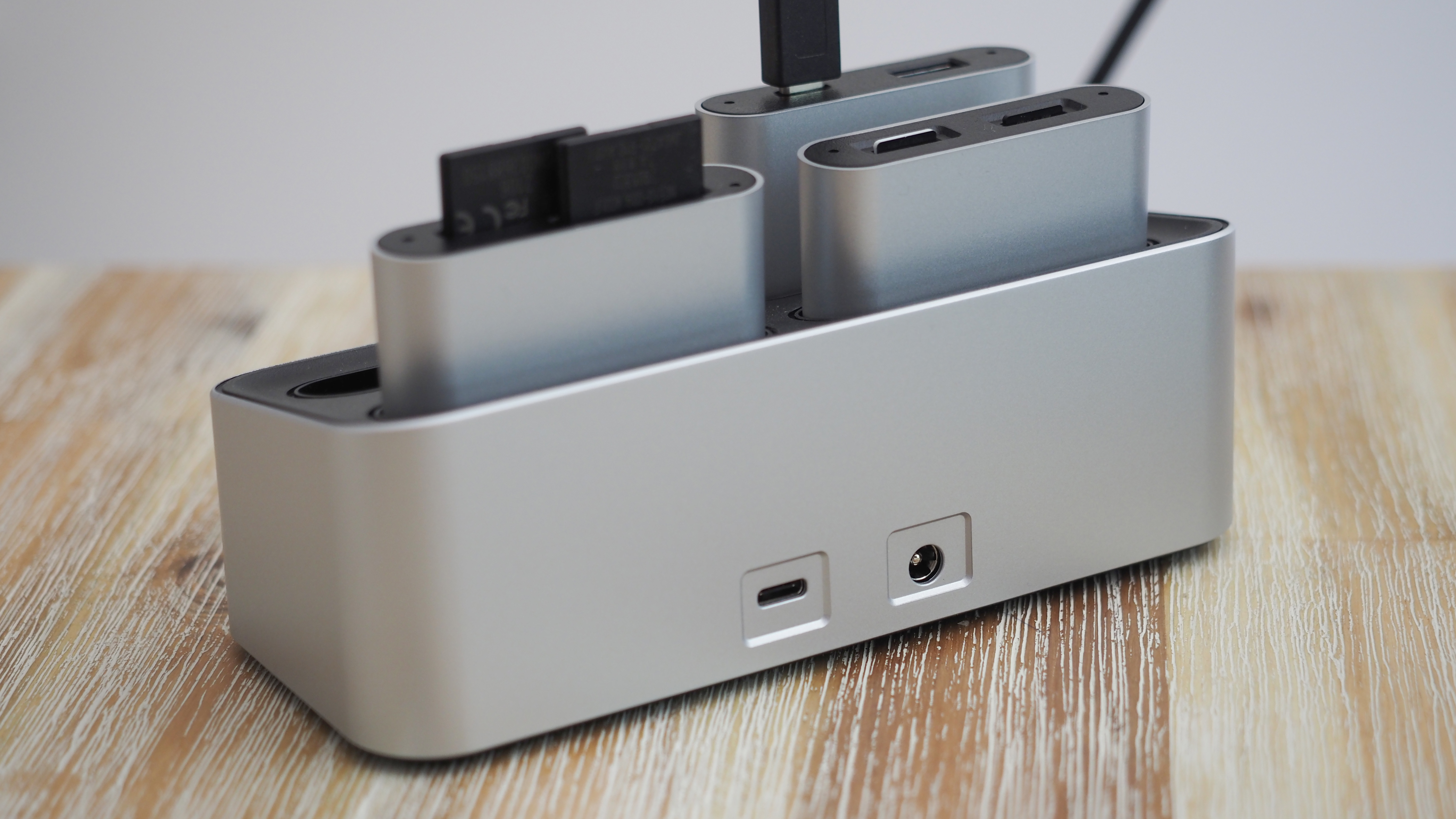
Kingston Workflow Station: build and handling
The Station has a beautiful, Apple-like brushed aluminum finish – indeed, it seems designed specifically to sit beside your MacBook and look equally lavish.
It's very discreet at just 160.27 x 70.27 x 55.77mm, and despite its premium finish suggesting a weighty product it actually tips the scales at just 292g, with each Module weighing a scant 30g.
The base unit feels nice and sturdy, with rubber feet to prevent slippage, though the Modules rattle about in it ever so slightly. They also feel a bit hollow, clearly designed to uniformly fit the Station's slots even though not all of them require the same amount of circuitry inside.
However, at just 62.87 x 16.87 x 50mm they are the ideal size to slip in your camera bag, laptop bag or back pocket to take with you on a shoot or when traveling.
Kingston Workflow Station: performance
It's not until you actually use the Workflow Station that you realize what a revelation it is. We've all owned US hubs that don't have enough of the ports or connections that we want, or that have plugs and slots on every side that therefore means it can't sit on your desk tidily without cables spewing in all directions.
With Kingston's product, you choose the connections you want and slot them in – with all the devices and cards plugging in the same direction, so it's neat and uniform and makes accessing your data a breeze.
Transfer speeds are good – we pinged across a 10-minute 4K video in 30 seconds. Certainly when you have two, three or even eight cards or devices plugged in and transferring simultaneously, transfer speeds take a hit. However, it's still much quicker than having to do them one by one and switch them out in-between.
The modular design also means that you can have, for example, the USB miniHub Module with a USB-A hard drive and USB-C SSD permanently connected to it, which can be quickly swapped out for a second USB miniHub when you want to plug in your camera or flash drive or other occasional device. So it saves wear and tear, as well as the hassle of unplugging and re-plugging the connections you use most often.
It's also great that each Module can be used without being plugged into the dock, if you're taking your laptop to the coffee shop or you need to transfer something away from your desk.
However, it feels like a bit of an oversight that the main dock has to be connected to mains power in order to read cards or devices that don't themselves need power; you can take the SD Module out and connect it directly to your computer, but the dock has to be plugged into the mains if you want to use it from there.
Obviously it's designed to sit on a desk, and some USB devices need to draw power in order to work, but it would have been nice to have the option to go mains-free if all you have are four SD card Modules.
Kingston Workflow Station: Verdict
In a world where USB-C is king according to the likes of Apple, yet many of our data devices don't have a USB-C connection, hubs like this are utterly invaluable for creatives, and the Kingston Workflow Station is the most well thought-out and versatile of them all when it comes to data transfer.
Build it with exactly the connections you want, transfer to and from them all simultaneously if you want to, and relax safe in the knowledge that you're getting the speed and reliability of one of the biggest names in data.
It's a minor quibble that the dock can't be used without power, and there are currently only three connections offered (USB-A, USB-C, SD and microSD) – we would love to see a CFexpress Module, for instance, but we're sure that's on the drawing board. Regardless, this is a brilliant USB-C hub that will genuinely improve the way you handle your data.

James has 25 years experience as a journalist, serving as the head of Digital Camera World for 7 of them. He started working in the photography industry in 2014, product testing and shooting ad campaigns for Olympus, as well as clients like Aston Martin Racing, Elinchrom and L'Oréal. An Olympus / OM System, Canon and Hasselblad shooter, he has a wealth of knowledge on cameras of all makes – and he loves instant cameras, too.

